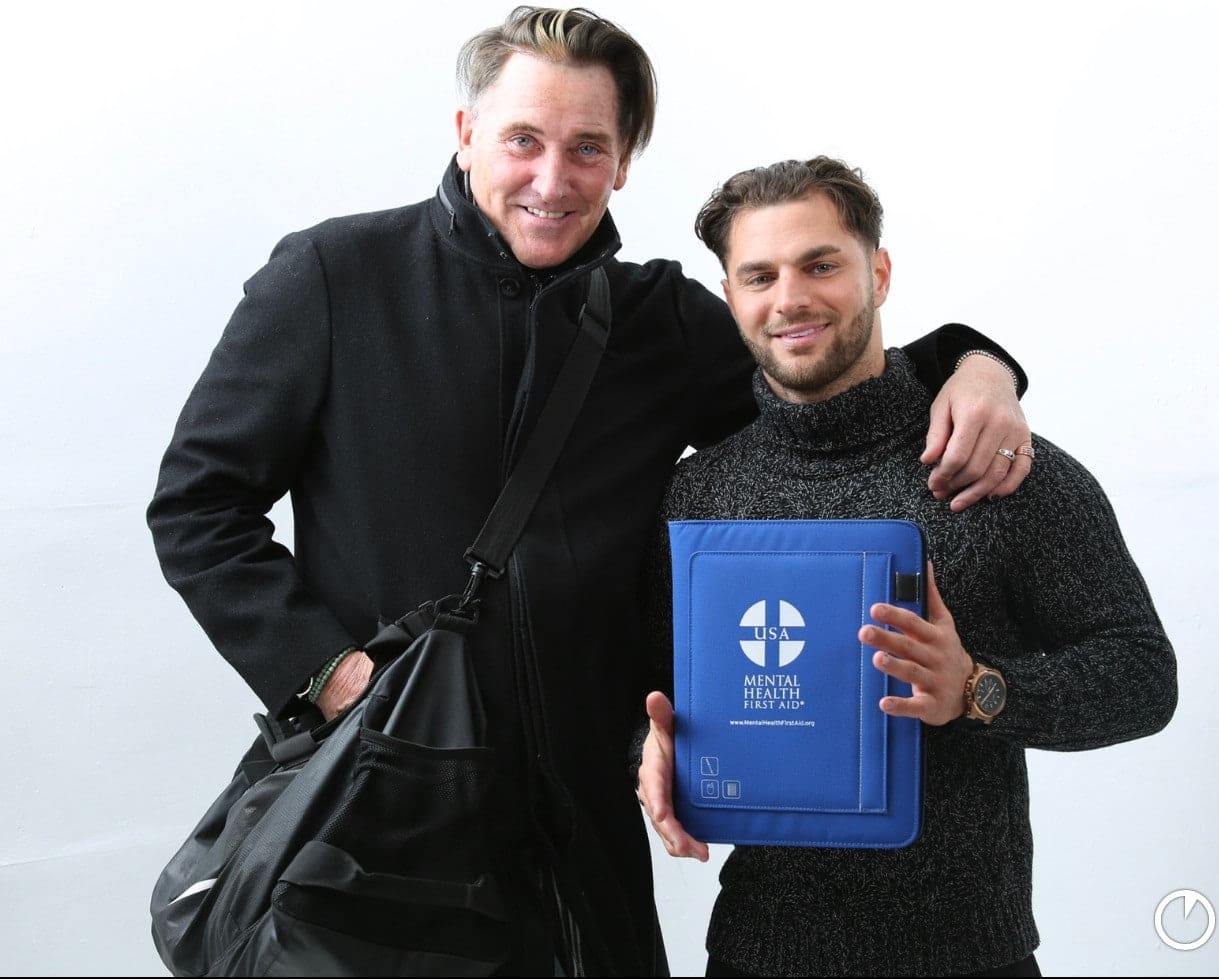What is Mental Health First Aid?
Mental Health First Aid re-imagines the way we view mental health and substance use. If the world viewed treating suicide and similar symptoms of mental health illnesses in the same way we treat more apparent medical conditions, the world would be a different place.
Mental Health First Aid aims to make a world in which we view addiction, substance use disorders, and mental health illnesses with the same lens as other medical conditions. Through their eight hour course, this organization teaches students how to understand, recognize, and respond to various signs of mental illnesses, as well as substance use disorders.
Partnering with Warriors of Purpose
Rodney Lavoie Jr from Survivor and Kevin Schlehuber from Big Brother are partnering with us as instructors for the first aid course. Both Lavoie and Schlehuber are members of Warriors of Purpose, a group that works to empower youth through real stories about overcoming brokenness and creating new opportunities for themselves, their families, and communities all over the world.
Partnering with Mental Health First Aid allows Lavoie and Schlehuber to actively teach others how to be “warriors of purpose”. They aim to motivate youth to pursue their purpose, increase their self-esteem, and achieve their own personal goals, while learning the tools to help others do the same.
What to Expect from the Course
Through the course, participants will receive the skills necessary to reach out to others and provide critical help and support if someone is in crisis or showing signs of substance use or mental health disorders.
Mental health and wellness are far too important to ignore. In the same way many of us are aware of how to respond to common conditions like heart attacks, we all need to have the same sense of immediacy and confidence when it comes to providing assistance to someone dealing with issues that are often ignored by society as a whole.
After undergoing training, the first aid students will be able to confidently begin conversations about substance use and mental health. This willingness to speak into others’ lives can be the life-saving difference between someone left to face mental health illnesses or substance use alone and getting the critical support they need.
Patrick Kennedy, trainee with the organization, points out how important these conversations are: “I would’ve ended up getting help earlier had I had the support of people who knew they weren’t interfering in my personal life, they were trying to save my life.”
Sponsorship for First Aid Courses
For the month of March, we are sponsoring 45 trainees in the eight hour course with instructors Lavoie and Schlehuber. Course-goers will learn to use an action plan to responsibly and safely address someone in need that might be at risk of suicide or experiencing mental illness or substance use disorders.
We encourage anyone interested in learning more about the first aid training to sign up for a course. As more people receive this invaluable training, the world will understand how to support and treat individuals with mental health and substance use disorders.












































